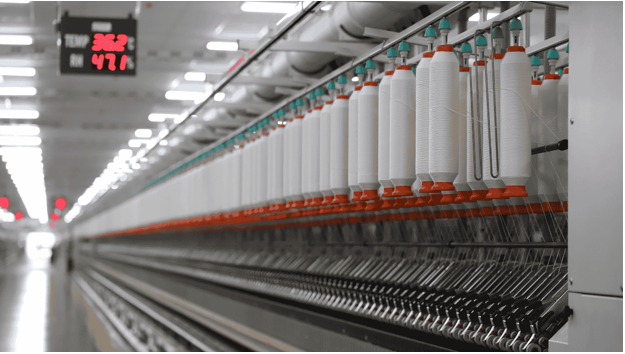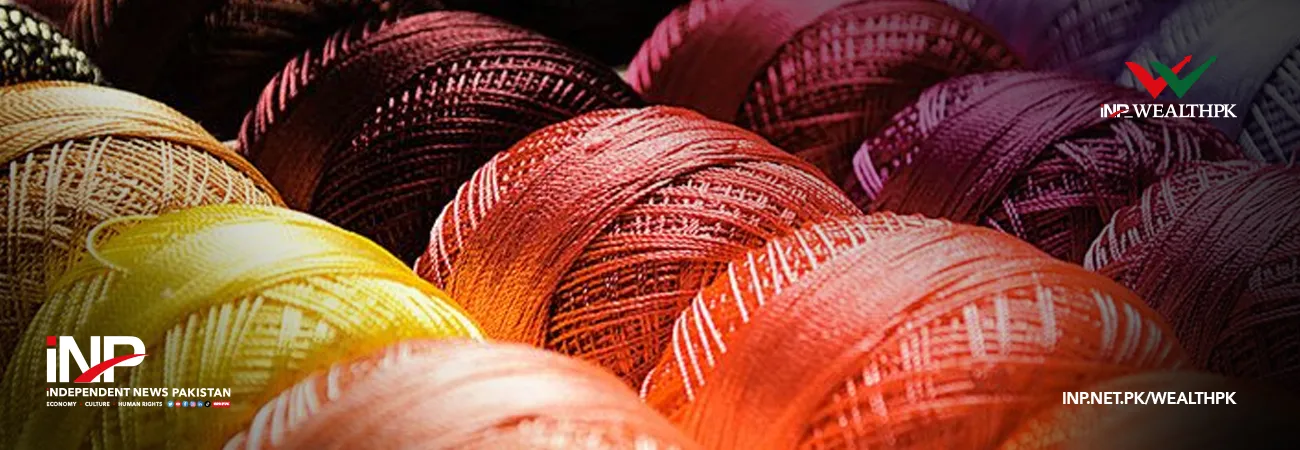INP-WealthPk
Muhammad Saleem
Chairman of Pakistan Textile Exporters Association (PTEA) Sohail Pasha has warned that the imposition of sales tax on key textile inputs will deal a severe blow to the industry’s stability.

Speaking to WealthPK, Pasha said the government has removed raw cotton, cotton yarn, and grey fabric from the Export Facilitation Scheme (EFS) and brought them under the ambit of 18% sales tax and related import duties. He stressed that this abrupt policy change would not only raise the cost of production but also tighten financial constraints on exporters.
“We are demanding a level playing field, but the government is steering in the opposite direction — a move that could put the textile sector’s global competitiveness, contract viability, and export volumes on the chopping block,” he said.
Pasha noted that the textile sector is Pakistan’s largest export earner, contributing over 60% to the national export basket. “Instead of smoothing the path for greater export growth, this decision throws a spanner in the works for exporters,” he added.
Before the recent SRO, raw cotton, cotton yarn, and grey fabric were either zero-rated or exempt when used by registered exporters under the EFS. This facility allowed seamless import of raw materials and inputs without upfront tax exposure.
“These arrangements enabled exporters to maintain competitive pricing, secure international orders, and manage operational liquidity through predictable cost structures,” he explained.
However, Pasha said, the new SRO reverses this facilitation by mandating the immediate payment of full sales tax and customs duties, even when the end-use is 100% export-oriented. “This abrupt imposition departs from the internationally recognised principle of no tax on exports or export-related inputs,” he noted.
He warned that small and mid-tier enterprises, already operating on thin margins, will be hit hardest. “Diverting capital from productive use to tax deposits will delay procurement cycles and restrict their ability to deliver goods on time,” he said.
“The uncertainty and financial impact caused by this SRO could threaten ongoing export commitments. Many exporters are working under tight deadlines, bound by delivery timelines based on previously agreed input costs. Abrupt cost escalations may result in contract breaches, late shipment penalties, and loss of buyer confidence — damages not easily repaired in global supply chains,” he cautioned.
Pasha called for scrapping the SRO to avoid systemic disruption to the export sector. He stressed that zero-rated facilities for raw cotton, cotton yarn, and grey fabric must be reinstated immediately.
If the government insists on retaining the tax, he said, it should streamline the process by introducing a dedicated and automated refund mechanism under the EFS with a 30-day statutory disbursement limit, free from discretionary delays and audit harassment.
Pasha also proposed forming a joint advisory group comprising FBR officials, Ministry of Commerce representatives, and leading exporter associations, including the PTEA, to review taxation policies affecting the export sector and ensure policy coherence and economic alignment.
Credit: INP-WealthPk









